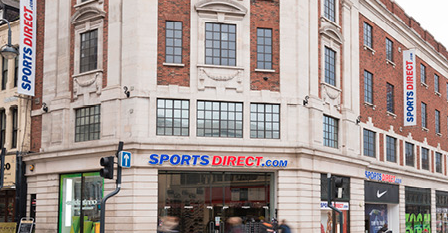Mike Ashley’s Sports Direct International has called a general meeting for shareholders to vote on whether Ashley’s brother John should be paid £11 million by the company.
A joint report by the Shirebrook-based firm’s legal advisers RPC and independent accountants Smith & Williamson found John Ashley had been paid less than “other senior executives who helped build the company.”
It said he was denied additional payments because of concerns over public relations.
Shareholders will vote on whether to make the payment on December 13.
A full statement from Sports Direct International read: “Mike Ashley is to voluntarily abstain from a vote on whether Sports Direct should reimburse millions of pounds to his brother, after a report found that John Ashley had foregone substantial remuneration from the company.
“Due to concerns previously expressed by shareholder groups, the company’s legal advisors RPC were asked by the board earlier this year to review John Ashley’s history with Sports Direct since it floated in 2007.
“The purpose of this review was to investigate and report on the total amounts paid in money and in kind to John Ashley, which had been called into question given his position as brother of Mike Ashley.
“The subsequent report by RPC was produced in conjunction with independent accountants Smith & Williamson LLP (who in recent years have no connection to Sports Direct, nor with the Ashley family).
“The report concluded that if John Ashley had been treated equally with other senior executives who helped to build the company, he would, in fact, have received additional remuneration payments totalling c.£11m, which he was denied because of concerns at the time about public relations.
“Due to the unique circumstances of this matter, independent shareholders will now vote at the General Meeting on a resolution to pay John Ashley c.£11m for services provided during his employment with the company.
“The board, including Mike Ashley, will abstain from the vote, although they are supportive of the resolution.”
Mike Ashley said: “I fully expect that independent shareholders will vote against this proposal due to the passage of time involved, although in my opinion, technically the money is owed and therefore should be paid.
“It’s important for me to say that if John had owed one pound to Sports Direct, I would have ensured any sum was repaid in full.
“I hope shareholders will therefore be reassured that everything is in order and that any concerns are laid to rest.
“I always put the interests of Sports Direct ahead of my own.
“An example of this was the loan facility for £250m that I previously made available to the company.
“No arrangement fees or commitment fees were ever charged on this facility, which was capped at an interest rate of 0.5%.
“This was at least 50% below the prevailing rate that Sports Direct was paying at the time, and the facility saved the company in excess of £1m.
“I want you to know that I will continue to put Sports Direct first as we move forward together.”
Royal London Asset Management holds a roughly £3.7 million equity stake in Sports Direct.
Ashley Hamilton Claxton, Royal London Asset Management’s head of responsible investment, said: “If appropriate governance measures were in place at Sports Direct in the first place, there would have been a clear and transparent process for paying John Ashley what he was due and there would be no need to review his compensation after the fact.
“We will not be supporting this vote because we feel it is a consequence of poor governance.
“The company has provided no evidence or detail explaining why the £11 million is owed. Investors need to see a plausible reason as to why John Ashley is owed money, not how much he is owed.
“We will also be voting against the second resolution at the upcoming general meeting, which will guarantee a minimum share price for executives.
“Even if the share price falls below this minimum, the executives will be rewarded through their compensation scheme.
“Although this change is in line with what is available to other employees, we do not think that it is appropriate for executives to be guaranteed a minimum share price, as this is against the core principle of pay for performance.”
